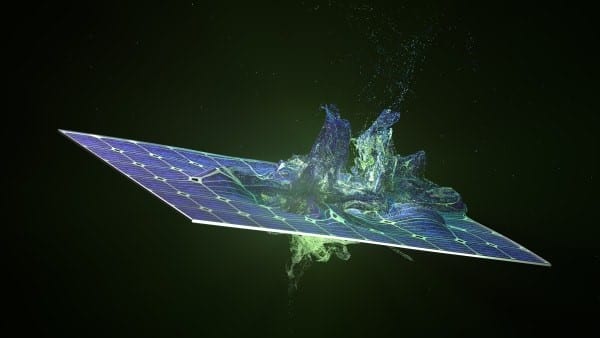A relatively new Australian company called Solar Recovery Corporation has announced it will purchase the intellectual property (IP) and technology of an Italian group with a decade of experience recovering materials from end-of-life solar panels.
In addition to purchasing the consortium’s patented recovery process, La Mia Energia’s co-founder Dr Francesco and his team of engineers will come to Australia to assist in setting up the first processing plants and to oversee the replication of the company’s European business model in Australia.
The companies say La Mia Energia’s patented clean technology recovers more than 99% of “all types” of end-of-life solar panels without using crushing, chemicals, thermal processing, or pyrolysis techniques.
The first two processing plants will be in Biloela, in central Queensland, and Townsville, on the state’s north coast. The plants are expected to fully operational by March 2022.
Solar Recovery Corporation says it is planning a national expansion “within the next 24 months.”
The partnership will see Solar Recovery Corporation exclusively secure La Mia Energia’s patented clean technology for both Australia and New Zealand.
Solar Recovery Corporation is headquartered in Victoria and hasn’t specified why it has opted to set up both plants in Queensland. The company appears to have been incorporated in January last year, with little information available online to date.
The company’s advisory board chairman, Rob Gell, who is also executive director of ReThink Sustainability said circular economy technology is where the solar industry must head.
“Beyond recycling, materials recovery, product stewardship and Extended Producer Responsibility are the new order,” Gell said. “We cannot afford to dispose of valuable materials that can be revalued and repurposed, ideally into new solar panels, through the adoption of leading technology such as this.”
The panels’ recovered materials will be made available for repurpose into a range of manufacturing streams, which the company says will reduce CO2 emissions, the need for virgin minerals, and provide a circular economy solution for Australia’s growing panel problem.
Australia has one of the highest uptakes of rooftop solar in the world, with more than 3 million homes now using solar panel power but an increasing number of modules are entering the waste stream as they reach their end-of-life while others are being discarded prematurely as technological advances increase efficiency and reduce costs of new modules.
Researchers from the University of South Australia have estimated that more than 100,000 tonnes of solar modules will enter the waste stream by 2035 and currently almost all expired or discarded solar panels in Australia go into landfill.
An increasing number of bodies in Australia are looking to jump-start solar recycling and recovery, with Reclaim PV expanding its operations last year. Likewise, in December the University of Melbourne and RMIT University announced their partnership with the Melbourne-based company OJAS to develop a solar ‘upcycling’ facility.
This content is protected by copyright and may not be reused. If you want to cooperate with us and would like to reuse some of our content, please contact: editors@pv-magazine.com.









2 comments
By submitting this form you agree to pv magazine using your data for the purposes of publishing your comment.
Your personal data will only be disclosed or otherwise transmitted to third parties for the purposes of spam filtering or if this is necessary for technical maintenance of the website. Any other transfer to third parties will not take place unless this is justified on the basis of applicable data protection regulations or if pv magazine is legally obliged to do so.
You may revoke this consent at any time with effect for the future, in which case your personal data will be deleted immediately. Otherwise, your data will be deleted if pv magazine has processed your request or the purpose of data storage is fulfilled.
Further information on data privacy can be found in our Data Protection Policy.